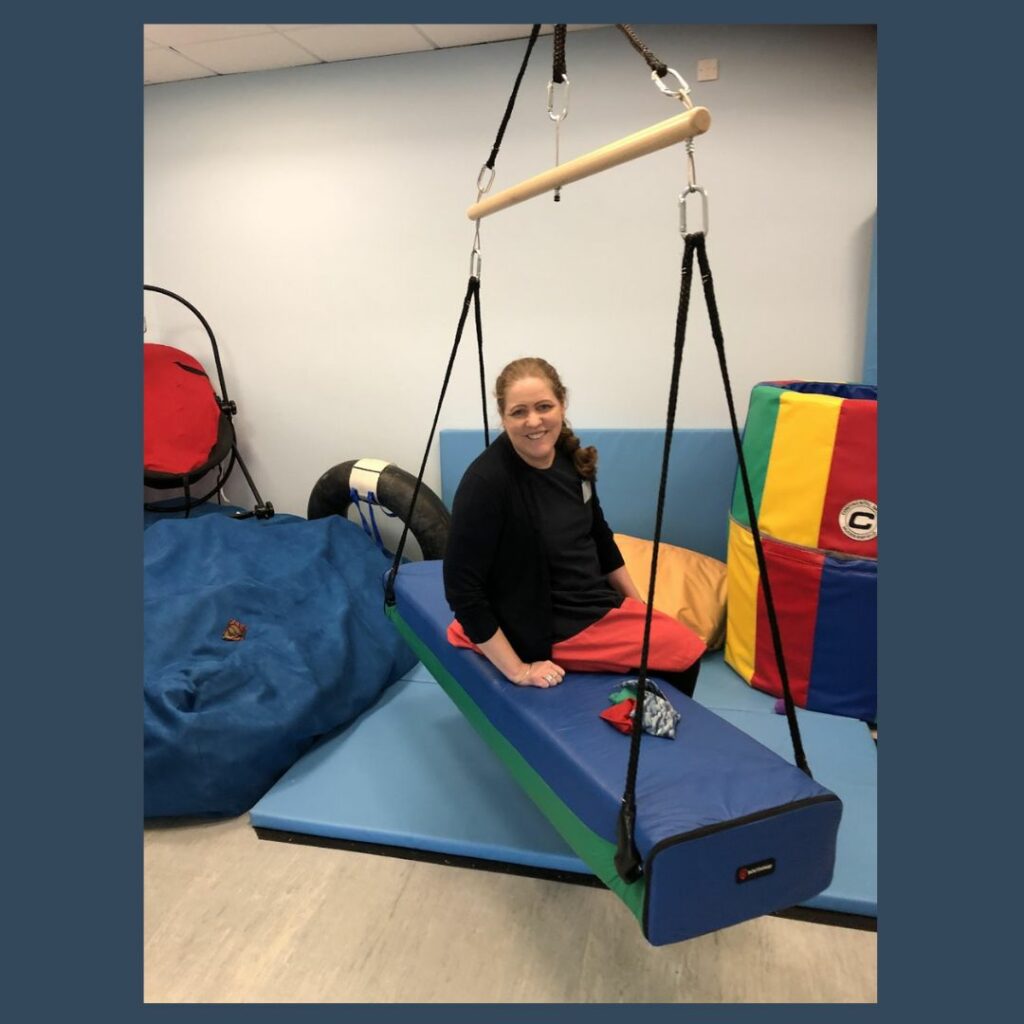Kath’s postgraduate education in Ayres’ Sensory Integration started in the early 1990’s while she was working in a CAMHS setting in South Africa, including with young people with trauma and in secure accommodation. On moving to the UK, Kath’s passion about ASI informed the innovation of services and products to support clients across the lifespan with sensory integration challenges; including assessment tools, parenting skills card, care pathways and intervention resources.
Building on her experience using SI within learning disability services, Kath combined DBT and Sensory Integration creating practical solutions for use in acute mental health. In 2002, her development and application of Sensory Ladders to support clients with trauma was visionary. As a 2005 Medical Futures Award finalist, Kath established The Sensory Project to promote ASI across the lifespan; with creation of the Parenting Through the Senses programme. Her All About Me sensory formulations to promote self regulation in mental health; with reduced inpatient admissions, use of restraint alongside improved participation in everyday life. With her growing expertise and innovative practice of ASI across the lifespan, Kath was invited to collaborate with Ros Urwin to develop and lecture the application of SI beyond Childhood, an area as yet unchartered by SI Network. Kath is published in peer reviewed journals about the application of Ayres SI across the lifespan.
‘In recognition of her clinical ability, innovative spirit and passion to develop Sensory Integration approaches for mental health settings’, in 2007 she was awarded ‘Occupational Therapist of the Year’ by the British Association of Occupational Therapy/College of Occupational Therapists. As accredited university lecturer and researcher, since 2005, Kath has explored and developed innovative teaching and learning methods, combining face to face and online technology to create early blended learning solutions; including telehealth. A member of the ICEASI Committee, representing therapists from the UK and Ireland, Kath is EASI Regional Lead for UK and Ireland Research Project.
Established in 2017 to safeguard occupational therapist led Ayres’ Sensory Integration across the UK and Ireland, ASI Wise delivers the ICE-ASI accredited CLASI Certification in Ayres Sensory Integration (CASI). Kath’s passion supporting others to learn about Ayres’ Sensory Integration is evident in her enthusiasm promoting and sharing ways of working alongside those with sensory integration and processing challenges.
Kath recently presented a key-note address and pre-congress workshop at ISIC2023 in Rio de Janeiro. Her presentation was a major milestone for therapist practicing Ayres SI across the life-span, exploring the themes she is so passionate about; sensory integration, neuroscience, trauma and innovative assessment and intervention built on years of clinical practice and her long history of and commitment to client co-production at all levels of clinical practice.
Kath’s innovation of Sensory Ladders and Spider’s, Grid’s an About Me Plans was a key feature of her ISIC presentation, with these accessible tools, used across the National Health Service in the UK and Ireland, as well as further afield, with their roots in Social Justice speaking directly to the theme of Dr Parham’s presentation about Occupational Justice.
